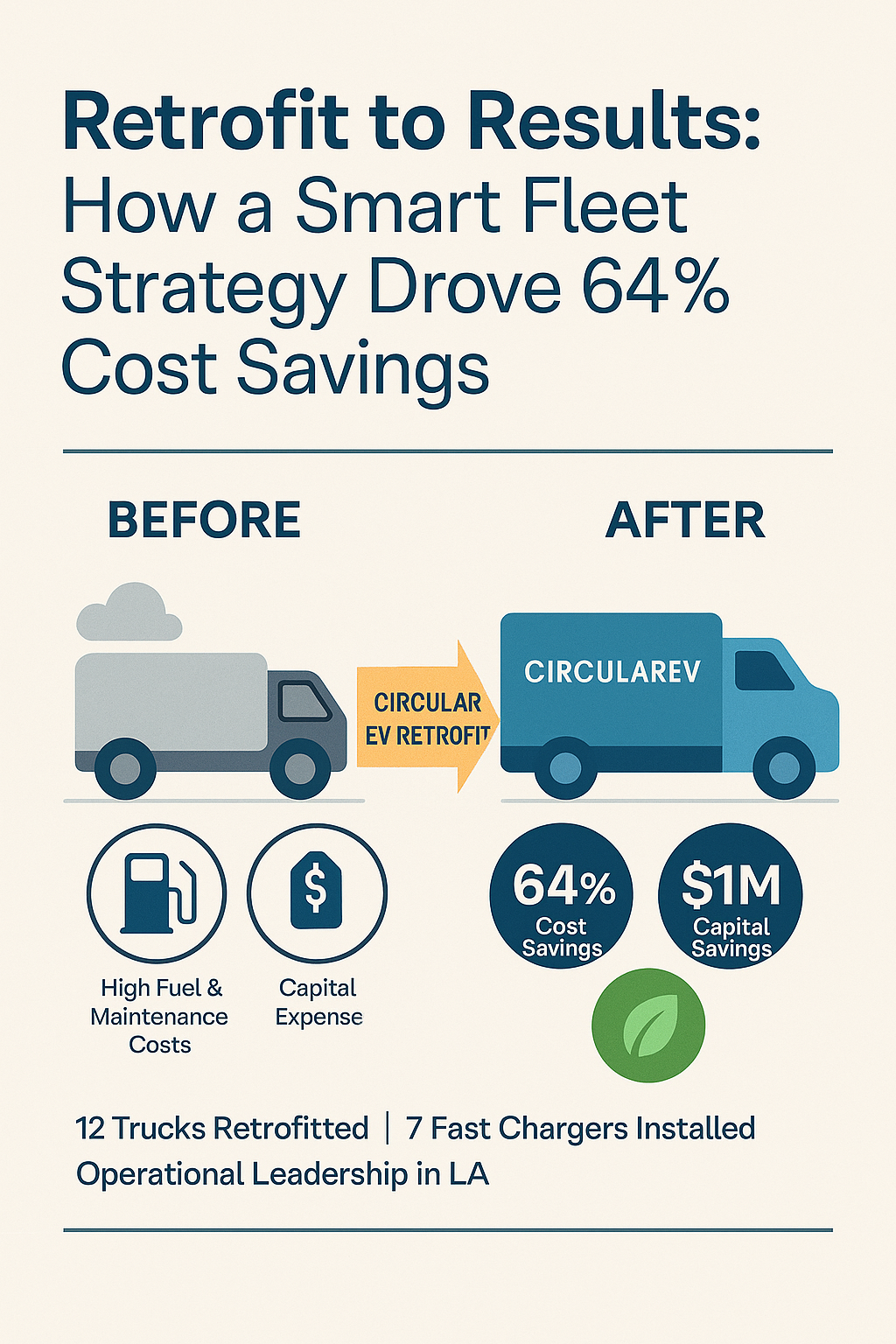
American Textile Maintenance, the parent company of Republic Master Chefs and Medico Professional Linen Service, has announced a major step forward in fleet electrification after a successful pilot with Evolectric’s CircularEV™ retrofit technology. The company is set to purchase 12 CircularEV™ Class 5 electric trucks, marking its first electric fleet deployment and projecting nearly $1 million in capital expenditure savings.
Pilot Success Drives Commitment
The decision follows an intensive 8-day trial at American Textile’s South-Central Los Angeles facility, where Evolectric’s retrofitted trucks delivered a 64% reduction in operating costs. These savings were primarily attributed to lower energy consumption and reduced maintenance requirements compared to traditional diesel or gasoline-powered vehicles.
Financial and Operational Impact
- Cost Savings: Each retrofitted truck is projected to save nearly $80,000 compared to acquiring a new electric truck, totaling close to $1 million across the planned 12-vehicle fleet.
- Capital Efficiency: The CircularEV™ retrofit solution enables fleets to convert existing commercial trucks to electric, cutting capital expenditures by up to 45% versus purchasing new EVs.
- Operational Reliability: Evolectric delivered its first CircularEV™ truck ahead of all other OEMs, overcoming supply chain delays that have stalled other manufacturers’ deliveries since 2022.
Infrastructure and Partnerships
To support the electric fleet, American Textile Maintenance is investing in fast-charging infrastructure at multiple locations. In partnership with Chargie and with support from the Los Angeles Department of Water and Power (LADWP), the company has installed seven 50kW fast chargers onsite, ensuring efficient and reliable charging for daily operations.
Sustainability and Strategic Vision
Brad Shames, President of American Textile Maintenance, emphasized the company’s commitment to sustainability and customer service:“Adding electric vehicles to our fleet enhances our commitment to sustainability and service excellence, helping us better serve the streets of beautiful Los Angeles and beyond.” Evolectric’s CircularEV™ technology aligns with broader industry trends, enabling companies to:
- Reduce emissions and environmental impact
- Stabilize and lower operating costs
- Extend the useful life of existing vehicles
- Transition to electric fleets without the disruption of full vehicle replacement
Industry Context and Broader Implications
This move by American Textile Maintenance is part of a growing trend among fleet operators seeking both environmental and financial benefits through electrification. Retrofit solutions like CircularEV™ offer a practical, scalable path for companies facing long OEM lead times or seeking to maximize ROI on existing assets.
The company’s approach mirrors successful strategies seen in municipal and corporate fleet electrification, such as leveraging leasing programs and federal incentives to reduce upfront costs and increase flexibility (as highlighted in other case studies, including Des Moines’ municipal EV leasing program).
Looking Forward
With the remaining Evolectric trucks scheduled for delivery over the next eight weeks, American Textile Maintenance is laying the groundwork for continued electrification, supported by robust charging infrastructure and a decentralized service model. This positions the company as a leader in sustainable fleet operations in Los Angeles and sets a compelling example for others in the industry.
Key Takeaway
American Textile Maintenance’s adoption of Evolectric’s CircularEV™ retrofit technology demonstrates that electrification is not just an environmental imperative but a sound financial strategy, offering immediate and substantial cost savings while supporting long-term sustainability goals.



